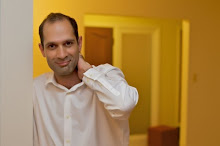
Taxis in Singapore are usually blue or yellow in colour, and are run by about 7 companies. The most popular one is Comfort Delcro and Citycab.
The government does not permit driver-owned taxis. Instead, drivers lease their cabs from one of the cab companies.
Rent of a taxi is S$130 a day (US$100 a day). To break even, each taxi must carry at least 40 passengers a day. The taxi is usually in use for about 20 hours a day, and occasionally 24.
The predominant taxi models are:
Toyota Crown (3.0 litre, diesel)
Hyundai Sonata
There are also a few Mercedes Benz, Chevrolet and Nissan Cedric taxis in use.
The taxi of choice used to be the Nissan Cedric, which gave favour to Toyota's trusty Crown for reliability reasons. Recently, the Hyundai Sonata burst onto the scene as the cab of choice because of its cheap automatic transmission. You don't want to be caught in rush hour traffic on the AYE with a manual transmission.
Taxi drivers usually work in pairs, and do a shift each (day or night). Some "crazy" taxi drivers do not have a partner, and regularly drive over 12 hours a day, 7 days a week.
The government mandates that all taxis be replaced after 5 years' service.
Typically, a taxi will run 600 kilometers (400 miles) every day. Most taxis on the roads of Singapore are about 3 years old, with over 600,000 kilometers on the clock (that's 400,000 miles). One three-year-old Toyota Crown had 845,000 km (600,000 miles) on the clock. And it felt new. All drivers swore that they had not replaced their engines even once.
Taxis are always serviced every month. That's a full government-mandated service, not just an oil change. Taxi drivers don't like this service, because it's half a shift of lost revenue.
Singapore taxis burn about 4200 US Gallons (17,500 litres) of fuel a year.
Having said that, taxis in Singapore are cheap. Much cheaper than they are in the US, or Europe. A trip from Changi airport to downtown (about 12 miles) will not set you back more than $S25 - that's about US$19. Compare that with $55 from SFO to San Francisco, a similar distance. Fares are strictly metered, and the meters are inspected by the government. A taxi driver may not charge for extras that he isn't entitled to. Extras include the rush hour, booking by phone (convenience charge of $2.50), weekends, late nights and ERP fees.
Most of my friends in Singapore have gotten by without the use of a car. In metropolitan and residential areas, a cab is a maximum of 7 minutes away if you book one by phone. The automated phone service delivers a taxi to your location, based on driver availability in the region, and even remembers your name an call location based on caller ID. It works well, except on Sunday mornings, when everyone goes to church.
What I noticed is that many senior "uncle" drivers seemed to be in the older, more traditional Toyota Crown cabs with manual transmission. They seem to have the same opinions about life in Singapore, and all agree that they are forced to work very hard to compensate for the high cost of living. Driving a taxi is something they do because they have to, not out of choice. They speak deferently of the government, though remind me that as a tourist, I am unaware of the harsh realities that Singapore society bestows on its elders with few savings.
In my next post, I'll explore some innovations from the Singapore MRT (subway system) and I'll show you how it's possible to organize a system for mass comfort, mass transit, and mass throughput.

